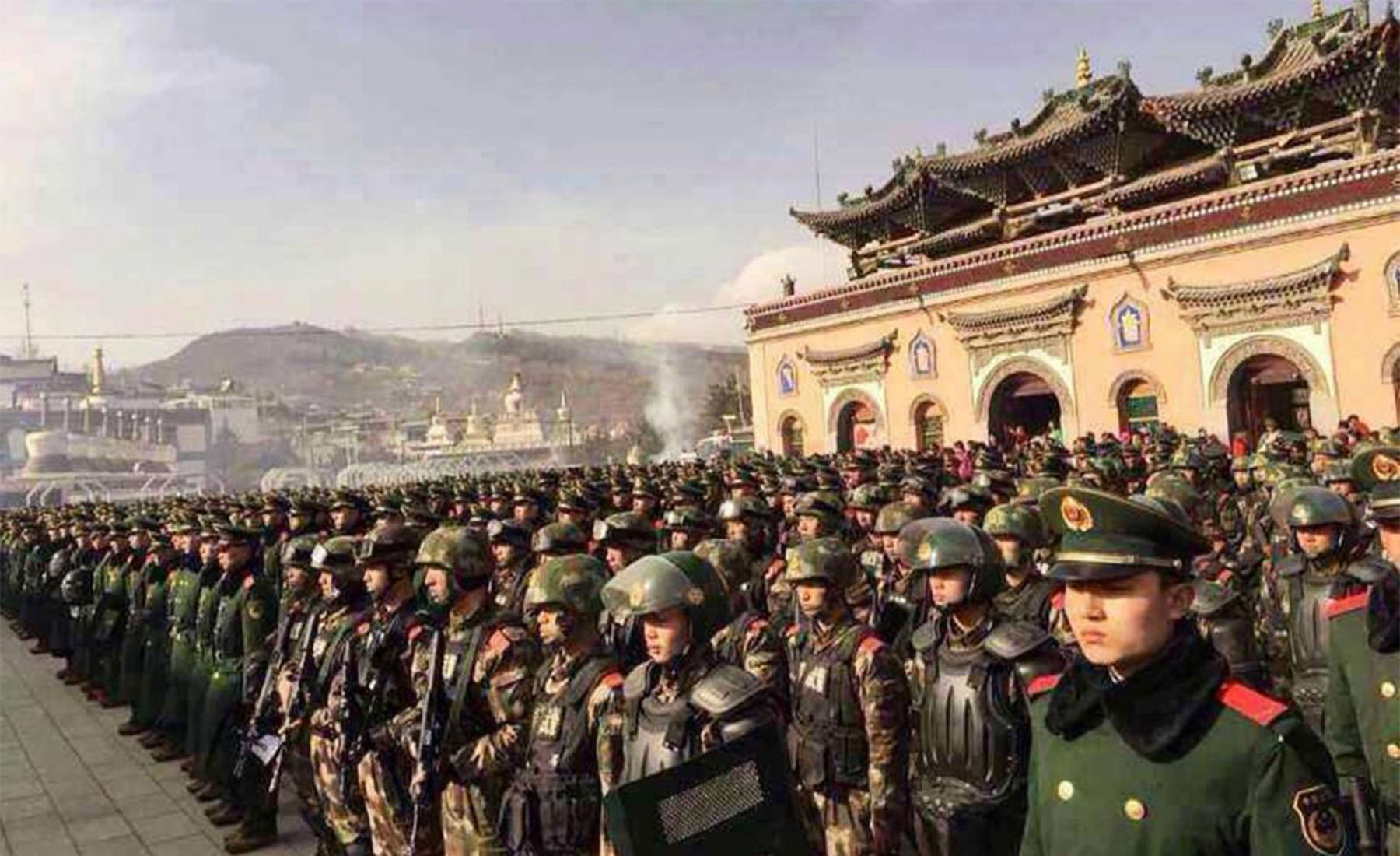
Since the 2008 Olympics in Beijing, Chinese forces have dramatically escalated their repression in Tibet, despite promises that hosting the Olympics would help China liberalize. China will once again host the Olympics for the upcoming Winter Games in Beijing.
A new briefing paper from the International Campaign for Tibet documents how the Chinese government has escalated its repression in Tibet since hosting the 2008 Olympics. China will host the Olympics again early next year.
“Olympic Descent: Repression in Tibet since Beijing 2008” notes that Chinese officials promised that the 2008 Summer Olympics in Beijing would improve human rights and social conditions in the country. However, even before the Games began, Chinese authorities launched a brutal crackdown on Tibetans, and China’s abuses in Tibet have continued to rise to this day.
The abuses include a system of mass surveillance and militarization developed by the architect of China’s Uyghur genocide; the arrest and torture of hundreds of Tibetan political prisoners; and an absurd plan by the Chinese government to appoint the next Dalai Lama as part of China’s assault on religious freedom.
The briefing paper comes with less than three months to go before Beijing once again hosts the Olympics for the 2022 Winter Games.
The paper also arrives amid reports that the Biden administration will soon announce a diplomatic boycott of the upcoming Olympics.
“Our briefing paper provides a valuable tool for anyone researching, reporting on or responding to the 2022 Winter Olympics in Beijing,” ICT Interim President Bhuchung K. Tsering said. “Although 2008 was fairly recent, China’s repression of Tibetans, Uyghurs, Mongols, Hong Kongers and others has increased dramatically since then.
“Before the Chinese government once again gets the propaganda victory of hosting the world’s greatest athletes, it’s important to look back on how the last Olympics in Beijing fueled increasing human rights violations that have continued to this day, and it’s vital to take action now—including by instituting a diplomatic boycott of the Games—before the next Olympics becomes a greater debacle for the international community and travesty for the victims of China’s oppression.”
Briefing paper
The paper touches on several aspects of China’s repression in Tibet since it was awarded the 2008 Summer Games, including:
- A brutal crackdown on overwhelmingly peaceful protests that broke out across the Tibetan Plateau in 2008 over calls for freedom, human rights and the Dalai Lama’s return to Tibet. The Tibetan Buddhist leader has lived in exile since China’s annexation of Tibet more than 60 years ago.
- The arrests of hundreds of Tibetans in the period surrounding the Games. ICT was able to document the detentions of more than 600 Tibetan political prisoners from March 2008 to March 2009, although the actual number was likely much higher.
- A wave of Tibetan self-immolations that began the year after the Games. More than 150 Tibetans have committed self-immolation since then, lighting their own bodies on fire in a desperate act of protest.
- A system of digital authoritarianism developed by former Chinese Communist Party Secretary of the Tibet Autonomous Region Chen Quanguo. Chen has gone on to serve in the same role in East Turkestan (also known as Xinjiang), where he has led the Chinese government’s genocide of Uyghurs and other Muslim groups.
- Severe restrictions on Tibetans’ ability to practice their own language, culture and religion.
Recommendations
The briefing paper makes several recommendations, including for the diplomatic boycott of the Games by countries around the globe.
The paper also says the International Olympic Committee should revoke its decision to award the 2022 Games to Beijing, absent meaningful reform from the Chinese government.
Read the briefing paper, “Olympic Descent: Repression in Tibet since Beijing 2008”.

